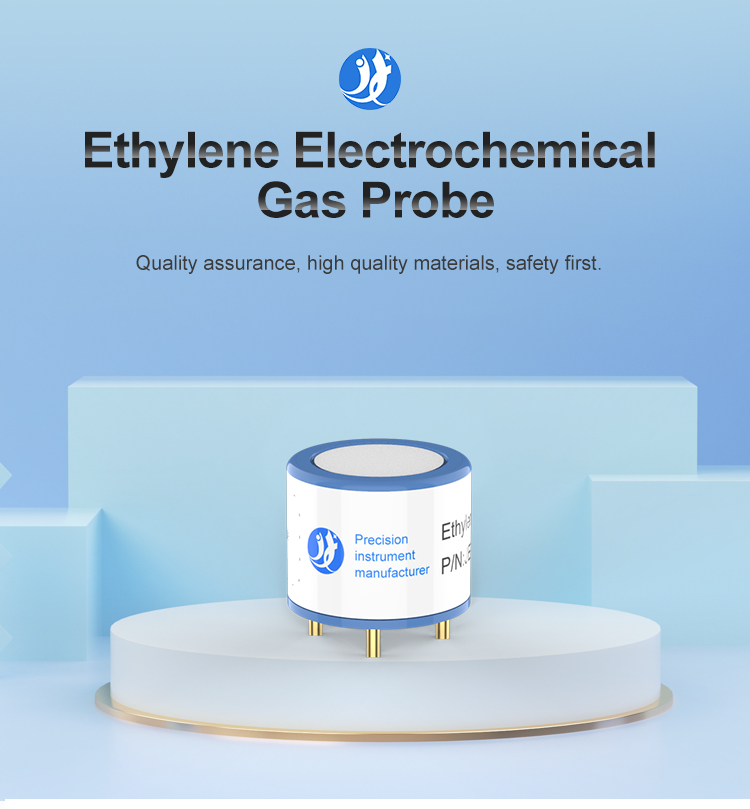Ethylene Electrochemical Gas Sensor is a kind of ethylene sensor which is developed and produced by Jingxunungao for measuring the concentration of ethylene gas. Electrochemical C2H4 gas sensor uses electrochemical method to measure gas concentration, and adopts three-electrode structure design, which greatly improves the performance of the product. The ethylene sensor has a built-in temperature sensor for temperature compensation. It is a universal gas module designed and manufactured by combining mature electrochemical detection technology with excellent circuit design.
Working principle of ethylene electrochemical gas sensor

Ethylene electrochemical gas sensors operate on the same principle as general electrochemical gas sensors. The sensors consist of an anode, a cathode, and an electrolyte solution. Ethylene gas diffuses into the sensor and reacts with the sensing electrode, producing electrical current according to Faraday’s law. This current is proportional to the concentration of ethylene gas present in the environment.
Advantages of Ethylene Electrochemical Gas Sensor
Ethylene electrochemical gas sensors offer several advantages over other types of ethylene detection methods. Firstly, they have high sensitivity, allowing for the detection of trace concentrations of ethylene gas. This sensitivity is particularly critical in agricultural settings, where detecting low ethylene concentrations can prevent early spoilage of crops. Secondly, these sensors can distinguish ethylene from other gases in the environment, ensuring accurate and reliable detection. Additionally, ethylene electrochemical gas sensors have a fast response time, enabling real-time monitoring and immediate corrective action in case of ethylene buildup.
Applications of Ethylene Electrochemical Gas Sensor

The application of ethylene electrochemical gas sensors is primarily in the agriculture industry. These sensors are used by the food processing industry to monitor and control ethylene levels during storage, transportation. By detecting and regulating ethylene levels, ethylene electrochemical gas sensors help extend the shelf life of perishable products. In addition, these sensors have applications in greenhouses and other controlled environments. In these environments, maintaining optimal ethylene levels is necessary for plant growth and development.
Future Developments Ethylene electrochemical gas sensors offer promising opportunities for improving agricultural practices. Ongoing research aims to enhance the sensitivity and selectivity of the sensors and improve their durability under varying environmental conditions. Additionally, researchers are exploring ways to integrate wireless communication technology into these sensors, enabling remote monitoring and control of ethylene levels. These advances will pave the way for even more precise and reliable ethylene detection systems in the future.
Conclusion
Ethylene electrochemical gas sensors have become highly effective tools for monitoring industrial ethylene levels. Their advantages make them invaluable in preventing crop spoilage. With continued development, ethylene electrochemical gas sensors are expected to continue to advance and contribute to improved industrial practices.